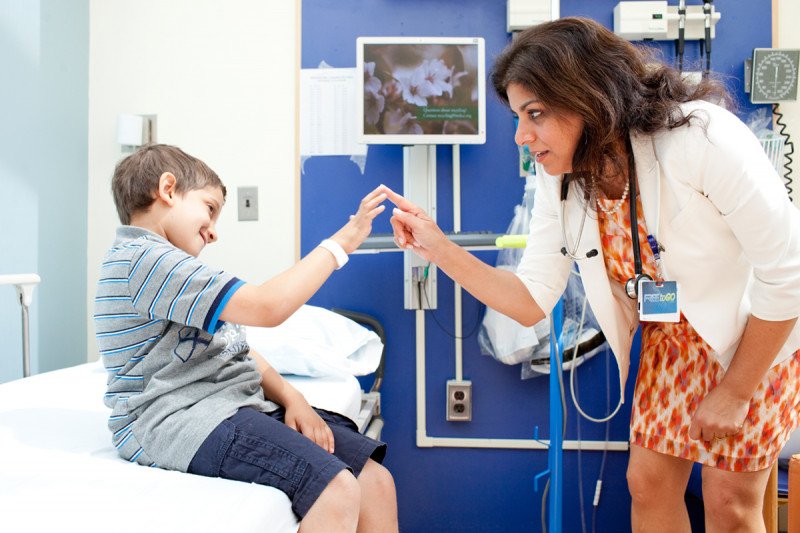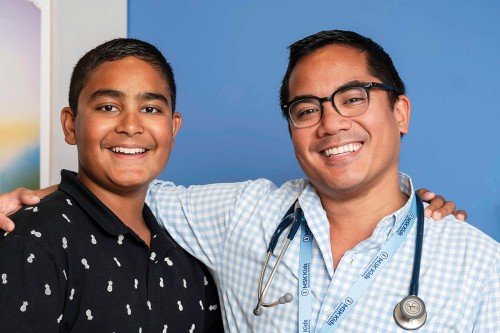
The treatment of childhood cancers has improved dramatically in recent decades, with cure rates higher than ever before. Our experts take every precaution to limit the side effects of treatment, working closely with many specialists to treat any heart, lung, hormone, hearing, or dental issues that arise. Learn about several of our subspecialty areas below.
Neurology: Protecting Your Child’s Nervous System
Cancer treatments — including chemotherapy, radiation therapy, and surgery — can sometimes cause headaches, difficulty walking, seizures, or issues with thinking and problem solving (“cognitive function”). Pediatric neurologists on the MSK Kids team understand that your child’s developing nervous system requires special care during treatment.
Cardiology: Caring for Your Child’s Heart
Some forms of cancer treatment, particularly radiation therapy to the chest and chemotherapy drugs such as doxorubicin, can have an effect on the heart. To identify any changes in cardiac function, we listen to your child’s heart frequently during treatment and monitor it using imaging methods such as echocardiography, nuclear cardiac scans, MRI, and CT scans. The guidelines that our pediatric cardiologists wrote for monitoring heart function during and after cancer therapy are now used by physicians around the world.
We take particular care with our young patients who have preexisting cardiac problems, such as congenital heart disease. We also have expertise in treating children who have rare tumors that invade the heart muscle or tumors that arise in the heart.
After your child completes therapy, our cardiologists continue to work with the Long-Term Follow-Up Program to monitor and respond to any needs involving the heart.
Endocrinology: Monitoring Your Child’s Development and Hormones
Cancer and its treatments can also have an impact on the endocrine system, which produces hormones in the body. At Memorial Sloan Kettering, our pediatric endocrinologist works with children and young adults experiencing hormone or growth problems after cancer treatment as well as those with tumors involving the endocrine organs, such as the thyroid, pituitary, or adrenal glands.
